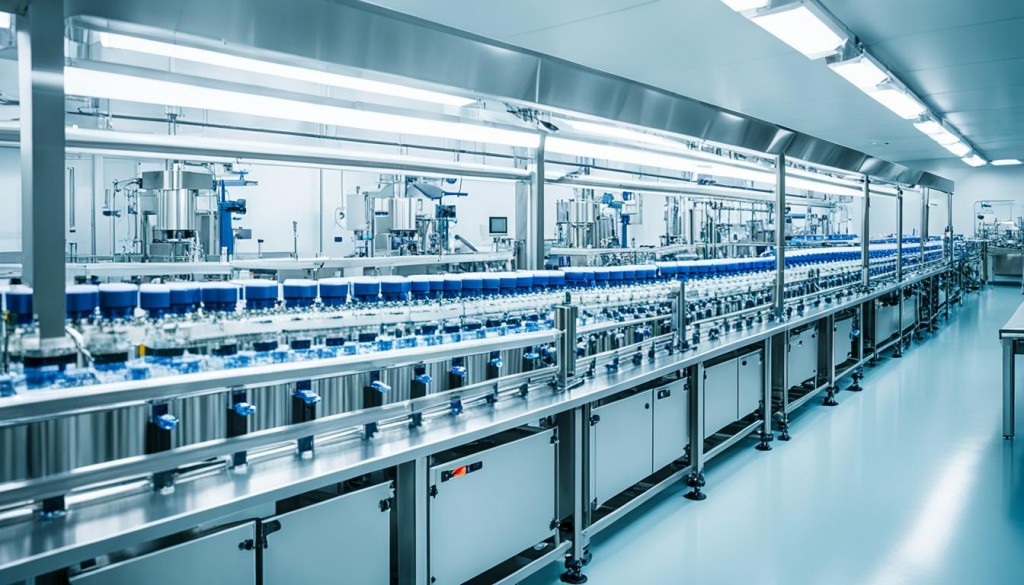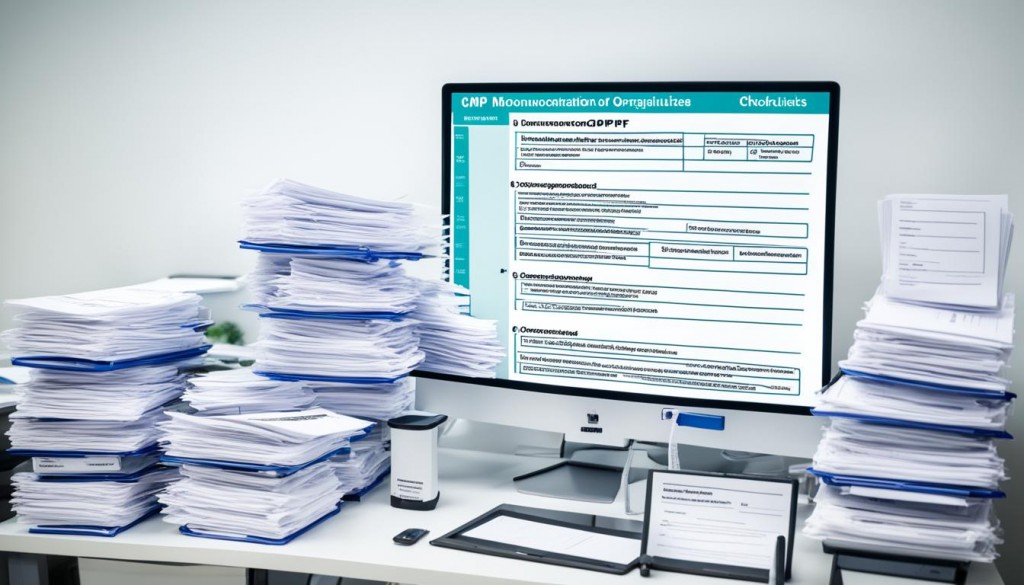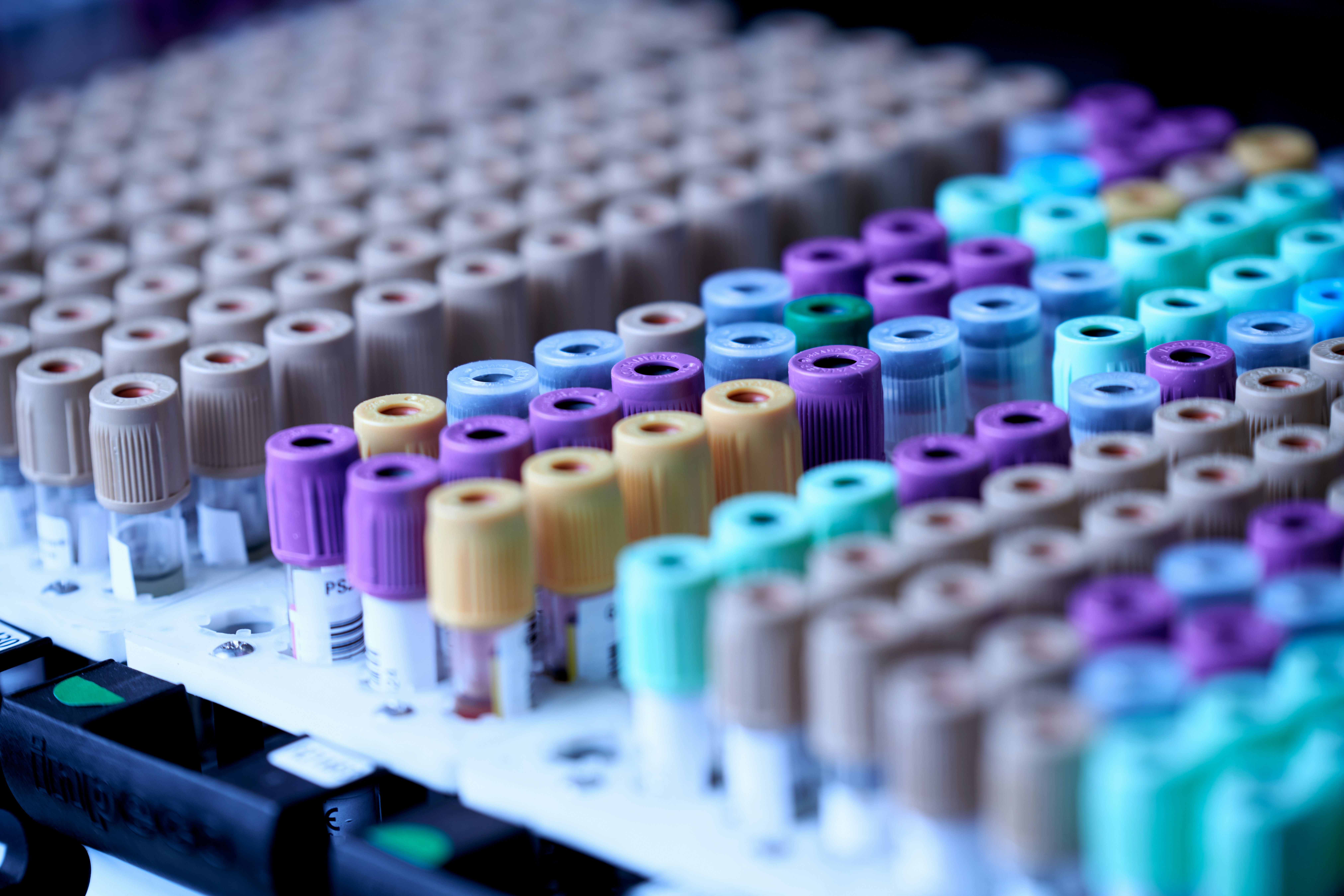July 28, 2025
In the pharmaceutical industry, Good Manufacturing Practices (GMP) are crucial. They ensure the quality, safety and effectiveness of medicines. This guide details the Good Manufacturing Practices or GMP, explaining their bases and requirements.
This guide helps businesses comply with the law. It allows them to improve the way they produce. As a result, they can offer high quality medications to customers.
Les GMP (Good Manufacturing Practices) are important rules in the pharmaceutical industry. They set the criteria for the quality, safety and effectiveness of medicines. The aim is to ensure that products are manufactured and distributed correctly.
Les GMP provide clear principles and steps for manufacturing. This goes from obtaining raw materials to final distribution. These rules include process validation, quality control And the risk management.
Respect the GMP is essential for the safety and effectiveness of medications. It also ensures compliance with the laws. Les GMP are synonymous with quality and compliance for the pharmaceutical industry.
Les GMP standards began in the 1960s, due to drug quality problems. Since then, they have followed technological and legal developments. This includes international harmonization, such as the standards ofEuropean Union (GMP GAME).
GMP standards are crucial rules for ensuring the quality of medicines. They are based on quality assurance, process validation and the creation of a controlled environment. These principles help throughout drug production.
Ensuring quality is key in GMP standards. That means putting systems in place to make medications stick to the rules. We use quality controls, we manage risks and we do audits regularly.
Validating processes is important to show that you have control over each manufacturing step. This control ensures that the medicines are of good quality, safe and effective.
Having a controlled work environment is crucial. Strict rules on installations, equipment and hygiene must be followed. This prevents contamination and ensures the quality of medications.
https://www.youtube.com/watch?v=1z2L2qYp8H0
GMP standards serve as the basis for making good medicines. They ensure compliance with the rules for quality production.
GMP standards focus on pharmaceutical facilities. They seek to offer a workplace that meets quality and safety standards. This applies to places where medicines are made.
How premises are designed and laid out is crucial for GMP standards. Workplaces should be easy to clean and maintain. They must also reduce the risk of contamination.
It is important to properly organize the movement of employees and products. This helps to limit crossovers. The separation of spaces for production, the quality control and storage is essential too.
According to GMP, equipment must be well maintained and qualified regularly. These actions ensure that they work well, are reliable, and match manufacturing needs. It is also necessary to clean, calibrate and validate this equipment properly.
All this ensures the conformity of installations, the quality control And the traceability of products.
In short, GMP standards define what to do when it comes to design and maintenance. They are crucial to ensure that the medicines produced are of good quality and safe. And this, by creating a GMP environment favorable to risk assessment and strict controls.
The standards GMP aim to improve the quality control and drug traceability. This ensures the production of safe and high-quality medicines. Let's explore these key aspects of the manufacturing process.
Drug manufacturers need to create quality control systems effective. These systems include testing, analyzing, and approving product batches. They check that each product meets the standards before being sold.
The standard GMP also requires the management of errors and complaints. If a procedure is not followed correctly, it should be investigated and corrected. This ensures that the medicines are of high quality and safe.
In addition, have good systems of traceability is crucial. This makes it possible to follow each stage of drug manufacturing. So if there is a problem, the products are easy to trace.

In conclusion, control and traceability improve the quality of medicines. They ensure that the medications are safe and effective for patients.
The standards GMP (Good Manufacturing Practices) are essential in the management of human resources. They guarantee the smooth running of the manufacturing process. Thus, it is crucial that the staff is well trained and qualified. In addition, they must respect the rules of hygiene and dress.
Pharmaceutical companies must provide good training to their employees according to GMP. This training includes courses at the beginning of hiring and continuing education. The aim is to maintain and improve the skills required. It is also vital to check that staff are qualified for their work, in accordance with the rules in force.
In compliance with standards GMP, strict compliance with hygiene and clothing %clothing% is essential. Employees should wear protective clothing and follow the rules of cleanliness. Decontamination and cleaning protocols are also in place. All this is aimed at avoid contamination medications. Thus, the work environment remains secure and in compliance with the rules.
In the pharmaceutical industry, GMP standards are very important. They guarantee the quality of medicines. Documentation, that is, everything that is written, is key.
It ensures that all work can be monitored, reproduced and complies with the rules. Thus, the drugs are manufactured in a safe manner.
La GMP standard requires a lot of documents. For example, material and finished product specifications are critical. There are also procedures to follow, manufacturing records, and more.
All of these documents need to be created, approved, and kept secure. This is to ensure that the job is done well without health risks.
GMP document management follows specific steps. They need to be created properly, reviewed if needed, and then shared. Archiving is also an important step. This means keeping these documents for later reference.
There is also a system to find out if a document has been modified. This check prevents the use of unapproved versions. Frequent audits verify that everything is in compliance with current regulations.
GMP-Document Types Management Process
In summary, GMP standards require good document management. Paying attention to these papers helps to make safe medications. This ensures what is known as traceability, reproducibility, and compliance.

Compliance with GMP standards is essential in pharmacy. Inspections and audits are done often. This ensures that places, methods, and practices follow the rules. These activities help prepare for regular audits and internal audits.
GMP checks are important to see if a business is doing things right. It is vital to be prepared to show that we follow the gmp rules, BPF and Pharmaceutical bpf. Preparation includes:
In addition to official checks, companies do internal checks. This is used to judge whether one really follows the gmp rules and BPF. Internal audits help:
Doing these audits within the company is key. This is to ensure that we work with the best standards and that we have a gmp certificate valid.
The pharmaceutical industry is changing rapidly. Thus, the application of regulations GMP must adapt. New challenges and trends must be taken into account. This includes key points for successfully implementing GMPs in pharmaceutical manufacturing.
Technological progress is changing a lot in this sector. Automation, robotics, and AI are improving the traceability of products. They also improve the risk management And the conformity of installations.
But be careful, these new technologies require more rigor. Before using them, you must validate that they comply with the standards. GMP.
Globally, regulations are being sought to align. The idea is to facilitate trade, while maintaining a quality assurance. Efforts like the EEA and ICH are working for this. They seek to connect the various GMP standards and process ofcompliance audit.
This harmonization reinforces the product reliability. It also helps to lower regulatory barriers.
Let's look at examples where the standards GMP have been well applied in pharmaceuticals. We will see how these companies managed the challenges. They took care of the conformity of installations And of the traceability of products.
A lab that makes sterile drugs did very well. They have set up a super risk management system. This company received the GMP certification. In addition, it has improved manufacturing quality. It satisfied its customers.
A medical device factory was also able to stand out. She innovated in quality assurance and quality control procedures. By doing this, she ensured that her products were well monitored. She showed her seriousness about the rules. GMP.
Case study/Challenges made/Solutions implemented/Results obtained/Laboratory for the production of aseptic drugsRisk Management, process validation, compliance auditsSystem of risk management, process validation thorough, compliance audits Regular certification GMP, improving production reliability and customer satisfactionMedical device manufacturing unitQuality assurance, quality control procedures, traceability of products, conformity of installationsInnovative quality control procedures, guarantee of the traceability of products And of the conformity of installationsCommitment to best practices GMP
These examples show that pharmaceutical companies can succeed with GMP. They use thequality assurance And the risk management. Thus, they ensure the quality and safety of their products. It helps them to have the GMP certification. And that makes their work more reliable and efficient.
To successfully apply the GMP (Good Manufacturing Practices) in the pharmaceutical industry, staying informed is crucial. It is also necessary to develop the necessary skills. Here, you'll find the main players and possible courses to stay up to date.
THEEMA And the FDA have an important role in GMP. They set and update the rules. These organizations give GMP certifications to the companies that follow them.
THEISPE And theISO also offer GMP certifications recognized worldwide.
There are numerous courses to improve in GMP standards. They are available online and in person. These courses deal with process validation, the risk management, the quality control And the traceability of products.
Specialized institutes, associations and universities offer GMP certifications. This is useful for anyone who works in the pharmaceutical industry.
This guide explored GMP (Good Manufacturing Practices) in detail in the pharmaceutical industry. We talked about challenges, quality control processes, and more. The aim was to provide an overview.
Strictly complying with GMP is crucial to ensure that medicines are of good quality and safe. This helps businesses adjust to the rules on drug safety and effectiveness.
Thanks to pharmaceutical quality assurance and a good gmp environment, manufacturers produce quality medicines. This guide is essential for understanding everything about good manufacturing practices.
Good manufacturing practices (GMP) are a set of guidelines issued by competent authorities to ensure that medicines for human use are manufactured in a way that ensures their quality, safety and effectiveness.
Respecting GMP standards, or Good Manufacturing Practices, is crucial to ensure that the manufacture of drugs is carried out under controlled quality conditions, thus minimizing the risks of contamination and guaranteeing the effectiveness and safety of the products placed on the market.
GMP and GMP are essential components of quality management in pharmaceutical manufacturing. They provide the principles and guidelines needed to establish and maintain rigorous quality management systems that ensure that final products meet the required standards.
A: To obtain manufacturing authorization, a company must follow the guidelines established by the competent authorities, such as creating a comprehensive dossier demonstrating compliance with GMP standards, successfully completing GMP inspections, and obtaining the necessary certifications.
A GMP inspection is generally organized rigorously. Competent authorities, such as the Food and Drug Administration, review manufacturing facilities, production processes, and quality management systems to ensure that they comply with the standards and guidelines established by good manufacturing practices.
GMP inspections can reveal a variety of challenges, such as failures in complying with manufacturing protocols, inadequate documentation systems, or traceability issues. Successful inspections require thorough preparation and maintaining high quality standards at all times.
GMPs play a crucial role in the manufacture of investigational drugs by defining the principles and guidelines that ensure that these products are manufactured according to strict quality standards, ensuring their safety and the integrity of the clinical data generated.
Quality management in pharmaceutical manufacturing involves the full range of activities aimed at ensuring that medicines are manufactured consistently according to predefined standards. This includes material control, manufacturing conditions, quality control processes, and adequate documentation.
GMP guidelines are designed to minimize the risks of quality defects that could lead to pharmaceutical recalls. However, in the event of identified problems, GMP and quality management require an effective recall management system to quickly remove defective products from the market and protect public health.
Des formations conçues par des experts métier, régulièrement mises à jour pour coller aux exigences terrain. Découvrez nos modules les plus suivis et les mieux notés par les professionnels.

Formation complète sur les Bonnes Pratiques de Fabrication (BPF) adaptée à votre profil professionnel dans l'industrie pharmaceutique et vétérinaire.

Maîtriser les techniques et les procédures essentielles.

Les procédures essentielles d'hygiène et de sécurité pour le personnel...